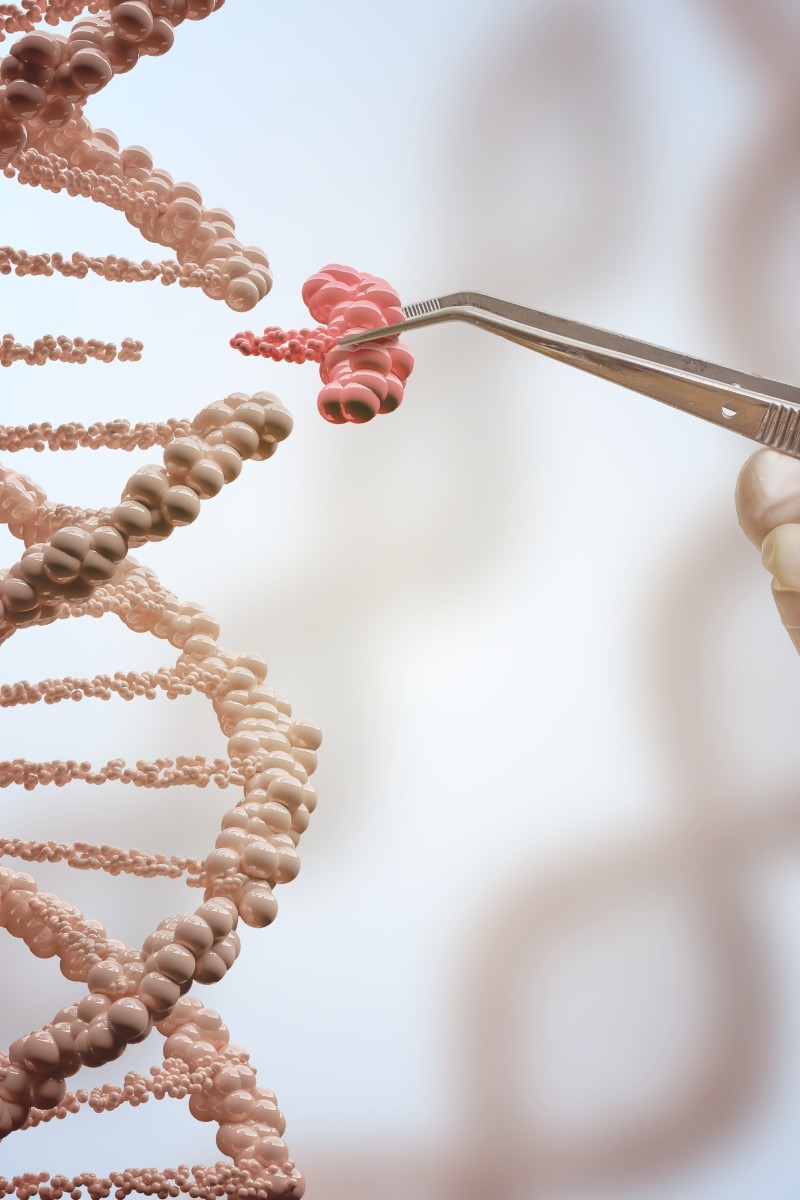
From breakthroughs in gene editing to the unveiling of the first-ever picture of a black hole and the rise of artificial intelligence, scientists made waves

The last decade has seen numerous breakthroughs as scientists around the world made revolutionary discoveries in various fields of science. As we begin our orbit around the sun in 2020, Young Post looks back on the top five scientific discoveries in the past 10 years that will continue to have a significant impact on our lives in the coming decade.
Life at nanoscale
Scientists have long sought to unlock the secrets of life and the eureka moment came with the breakthroughs in nano-scale microscopy technology in 2010. Researchers came up with solutions that allow light microscopes to look at much smaller objects – down to the level of one nanometre.
By using fluorescent molecules to change the wavelength of light emitted from the subject, this technique enables them to observe viruses, proteins, and even small molecules. This also made it possible to monitor living cells and observe processes such as DNA unfolding and protein interactions taking place in real time, which has benefited all fields of medicine and biology.
The next best thing in technology
Beyond black holes
Scientists have known for decades that black holes exist, but only in theory. In April 2019, the Event Horizon Team, a team of scientists from around the world, unveiled the first photograph of a supermassive black hole at the centre of the Messier 87 galaxy, which is about 54 million light-years away from Earth, deepening our understanding of the universe we live in.
The image showed the edges of the black hole – called the “event horizon” – for the very first time, confirming Albert Einstein’s general theory of relativity when he predicted the existence of gravitational waves in 1915.
Four months later, astrophysicists discovered the aftermath of a collision between a black hole and a neutron star (the remains of a dead star). The catastrophic collision nearly a billion years ago sent gravitational waves that passed through Earth last year.
How bacteria and fermentation can make food taste better
CRISPR craze
In 2012, researchers revealed a precise new method for editing genetic code known as CRISPR-Cas9 or CRISPR. The technology makes use of a natural defence mechanism in bacteria, which use RNA (a copy of DNA) to identify foreign DNA and enzymes.
Scientists around the world went on a gene-editing frenzy as they used the gene-editing technique to manipulate the genomes of different plant, animal and human cells. Fast forward six years to 2018, when He Jiankui, a Chinese researcher, created the world’s first genetically-edited babies. He used CRISPR to edit the twins’ DNA in a bid to make them immune to the disease HIV. It raised doubts about a clinical procedure that is banned in most countries, including China.
He was subsequently sentenced to three years in prison for illegally carrying out human embryo gene-editing intended for reproduction. However, this has not deterred the scientific world, as biologists are now looking at other CRISPR alternatives to cure human diseases.
The internet, the computer, the smartphone and other inventions that changed the world
AI deep learning
Developments in artificial intelligence (AI) took a quantum leap in the 2010s with “deep learning” enabling technology to mimic the human brain, as seen in Google’s AlphaGo. The computer program, which plays the board game Go, beat the human world champion in 2017. The following year saw Sophia, a human-like robot developed by a Hong Kong-based company Hanson Robotics, become the first robot to receive citizenship of any country.
According to Max Jaderberg, a research scientist at DeepMind, owned by Google’s parent company Alphabet, scientists and engineers are now in a race to develop algorithms that can learn to discover information, and rapidly adapt, internalise and act on new knowledge as opposed to depending on humans to feed them the correct data. That could eventually result in a new generation of machines capable of performing any tasks humans can, or even better.
Seeking humanity’s roots
The decade has shed more light on the human family tree, thanks to discoveries of fossils of our distant ancestors, Australopithecus sedibai and Homo naledi, in 2010 and 2015, respectively.
Advances in genetic testing have also helped unravel ancient migrations as we trace the origins and evolution of humanity. DNA pulled from an ancient Siberian finger bone showed the first evidence of Denisovans, a human lineage different to modern humans and Neanderthals. Denisovans were our ancient cousins, living alongside us until around 40,000 years ago.
More recently, researchers in the Philippines revealed the fossils of Homo luzonensis, a type of primate similar to Homo floresiensis, nicknamed “the Hobbit”, suggesting the presence of a new, unidentified extinct member of the human lineage in Southeast Asia.
